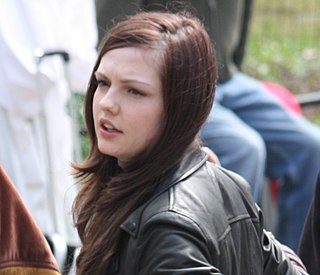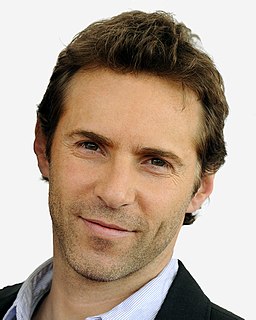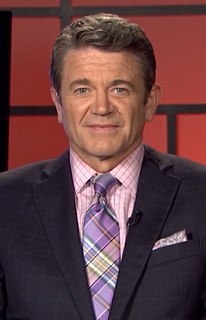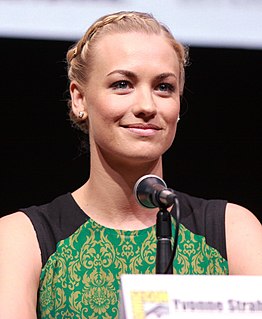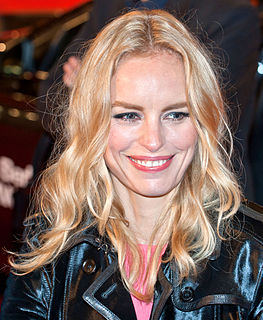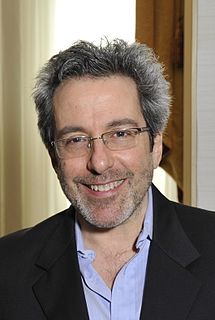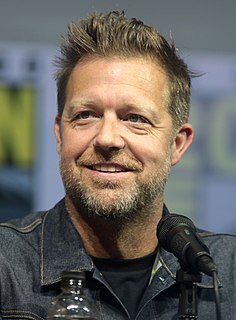A Quote by Emily Meade
'Twelve' was a total indie drama character piece. It wasn't that it was more about the performance, but it was just a very different thing where, with horror, there's this whole added element of the visual and the technical and the choreography.
Related Quotes
Another thing about creation is that every day it is like it gave birth, and it's always kind of an innocent and refreshing. So it's always virginal to me, and it's always a surprise. ... Each piece seems to have a life of its own. Every little piece or every big piece that I make becomes a very living thing to me, very living. I could make a million pieces; the next piece gives me a whole new thing. It is a new center. Life is total at that particular time. And that's why it's right. That reaffirms my life.
I come from a little bit of a theatrical background. I started that way. I don't have a tremendous body of work or anything, but I went to drama school. And so, to get to do a piece where the characters get to talk a lot, and that isn't just about the spectacle or the set piece, or is simply visual or movement based. It was really wonderful for me, and juicy and exciting.
'Hereditary' is unabashedly a horror film, whereas 'It Comes at Night' was a lot of things: it was a thriller; it was a postapocalyptic drama. It was a slow-building, very dark movie about relationships. 'Hereditary' is also about relationships, and I hope it functions as a vivid family drama, but it is also very much a horror film.
I love musicals but it's very, very different. It's really just a different form than serious drama, and has very different rules and a completely different set of characters and requirements and ambitions. It maybe shouldn't be as separate as it is, but it's got a different history. In terms of serious drama, I think you'd have to say that you could break it down essentially into the narrative realist tradition and experimental theater.
We really have a close friendship with Christian Petzold, which means we can be more frank and open towards each other, always with total respect. But, we push each other a bit further and further always, and we're always still curious about each other. And when he talks about a story he's thinking of doing, then the whole process is so special because I'm involved in a very early stage and I have the feeling I can, and not only, influence anything about my character, but about the whole story that my character's in.
Usually in theater, the visual repeats the verbal. The visual dwindles into decoration. But I think with my eyes. For me, the visual is not an afterthought, not an illustration of the text. If it says the same thing as the words, why look? The visual must be so compelling that a deaf man would sit though the performance fascinated.
I usually base my characters on composites of people I know. One trumpet player in SIDE MAN is really a mix of four different guys I knew growing up. Patsy , the waitress, is a mix of about three different people. I like doing it that way. I start with the characters, as opposed to plot, location, or some visual element. I write more by ear than by eye. I always work on the different sound of each character, trying to make sure each has a specific voice and speech pattern, which some writers could care less about.
There are more similarities than differences when it comes to preparation of a performance. You're using some lyrics, you have a relationship with them, they apply to different parts of your life and different circumstances, different memories, different stories you have in your head. You form personal relationships with the song. I think that's very similar, in a way, to prepping a character. You pour your own personality, in a sense, into the character, you sympathize with a character in a way that's similar to the way you might sympathize with a song.
